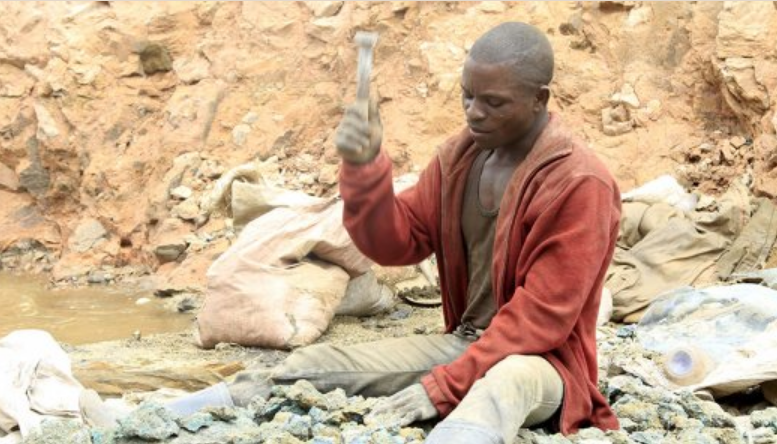DRC: Gécamines takes over the artisanal cobalt mining sector
Officially launched on 31 March, EGC – a new subsidiary of Gécamines – is intended to formalise and clean up a previously opaque artisanal mining sector. It will partner with Swiss commodities giant Trafigura, the US NGO Pact,
and the UK auditors Kumi, using blockchain technology to track minerals as they pass through the system.
The Entreprise Générale du Cobalt (EGC), a subsidiary of Gécamines, was officially launched in Johannesburg on 31 March. In development since its creation by a state decree in December 2019, and led since then by Jean-Dominique Takis, a senior executive and director of Gécamines, this new entity holds a monopoly on the purchase, processing and marketing of artisanally mined cobalt in the DRC.
“Our country holds 80% of the world’s cobalt reserves. It currently accounts for around 65% of global production, or 95,000 tonnes (tn) per year, of which 18,000tn, or $800m in revenue at current prices, comes from artisanal mining sites,” said Albert Yuma Mulimbi, president of Gécamines, who has been a driving force behind the creation of EGC.
A triple challenge to its mission
In a speech inflected with nationalist overtones, the Congolese CEO said the EGC will: “[Put] an end to a quasi mafia system based on the exploitation of Congolese workers, who are robbed of part of their income by intermediaries who sell untraceable ore through unauthorised export channels”.
He went on to stress the need to “regain control over the rate of cobalt extraction and therefore of world prices – in the same way as OPEC does for oil […] and to restore the country’s reputation on the international mining scene, which has been damaged in recent years.”
Mulimbi also welcomed the support of DRC’s President Félix Tshisekedi in this venture.
Three major partners
In the future – within six months, according to Gécamines’ management – it will be illegal for a manufacturer of cobalt cathodes, batteries or electric vehicles to buy artisanal Congolese cobalt from anyone other than EGC.
To succeed in its mission, the Gécamines subsidiary is relying on three partners: the Swiss commodities trading giant Trafigura, which is responsible for marketing cobalt cathodes; the American NGO Pact, which will support the creation of responsible artisanal mining cooperatives; and the British auditing firm Kumi, which will visit the sites regularly and draw up a quarterly report on the compliance of EGC’s activities and those of its suppliers with social and environmental standards.
As for tracing artisanally mined minerals, EGC will rely on blockchain technology to track cobalt throughout the value chain.
EGC has chosen Trafigura and Pact as partners due to their successful collaboration on the Mutoshi site, near Kolwezi, where a responsible artisanal cooperative was formalised from January 2018 to March 2020, in conjunction with the cobalt producer Chemaf, holder of the mining concession.
Electric vehicle boom
According to them, this collaboration has led to an increase in production and income for the members of the cooperative, an increase in the proportion of women and, above all, a drastic reduction in pollution and accidents. In fact, there have been no mining-related deaths.
“Trafigura is a world-class partner, it has the expertise to find the right customers at the best price for our cobalt,” said Takis, who is aiming for annual volumes of 15,000tn to 30,000tn of cobalt per year for EGC’s artisanal sector by 2025. He estimates that by then, the DRC’s share of this market – boosted by the growth in sales of electric vehicles – will reach 70%.
“For the time being, one site is being selected in Lualaba, in conjunction with the provincial authorities, and it should start mining at the end of April,” says Takis. The other artisanal sites – mainly located in the provinces of Lualaba and Haut-Katanga – will be delimited by the Autorité Régulatrice et de Contrôle des Substances Minières Stratégiques (Arecoms), which reports to the Ministry of Mines, in conjunction with EGC and its partners.
Formalisation closely watched
This unprecedented move to formalise the country’s artisanal mining sector – which, it is believed, employs around 200,000 miners – is being closely followed by the main players in gold and precious stones. These players are all facing the same problems of traceability, protection of workers and the environment, as well as the distribution of added value.
By Christophe Le Bec
